#marian seldes
Text

Marian Seldes, referring to Anne Sexton in "Anne Sexton: A Biography"
3K notes
·
View notes
Text
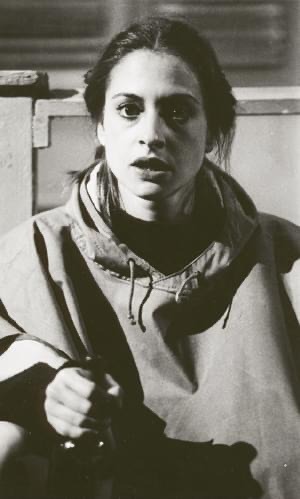
“When I would tell students to look at people, I knew it was hard for them to remember. They were young and starting their lives. They were going to see things and dating and having adventures. Fine, I would tell them, but look at everything. In every situation, including those in which you have a part. Actors need to be—and usually become—so sensitive to emotions that they can tell when someone is lying. To them or to others. A sort of extrasensory perception arises, and I’ve seen people on the bus or on the street, and I almost feel that I know just what they’re thinking and going through. I remember going to see Patti LuPone in The Woods. [A play by David Mamet that was done at Second Stage in 1982, where Marian saw it.] I had worked with Patti so much, and I had so much respect for her, and even as I felt I could see how she applied so much to her part, I was still not prepared for the effect it had on me.
Patti has an ability to allow us to feel that we have witnessed an emotional autopsy on her. She is unafraid to just expose herself, and in that play she was both angry and distorted by this emotion, and then resplendent in her love and joy. I felt at one point that I was witnessing her having a real orgasm on that stage, and perhaps I was witnessing her memory of pure ecstasy, which she pushed out from her being. I have always loved how Patti looks, but there was a moment in that play in which she became resplendent. It was like she had a dozen light bulbs inside of her, and they all switched on at the same time. I’m not going to ask Patti what she was thinking, what she was applying, but I will never forget that performance."
--Marian Seldes on Patti LuPone
(Follies of God)
25 notes
·
View notes
Text
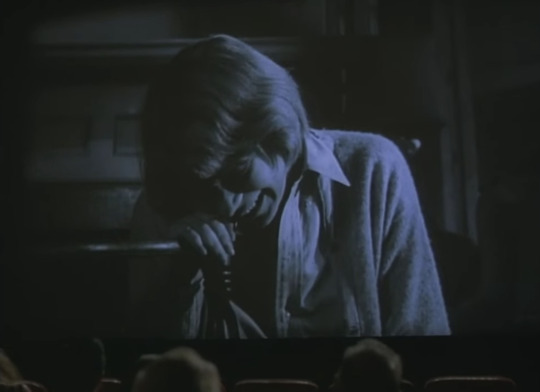

If These Walls Could Talk 2 (2004)
29 notes
·
View notes
Text
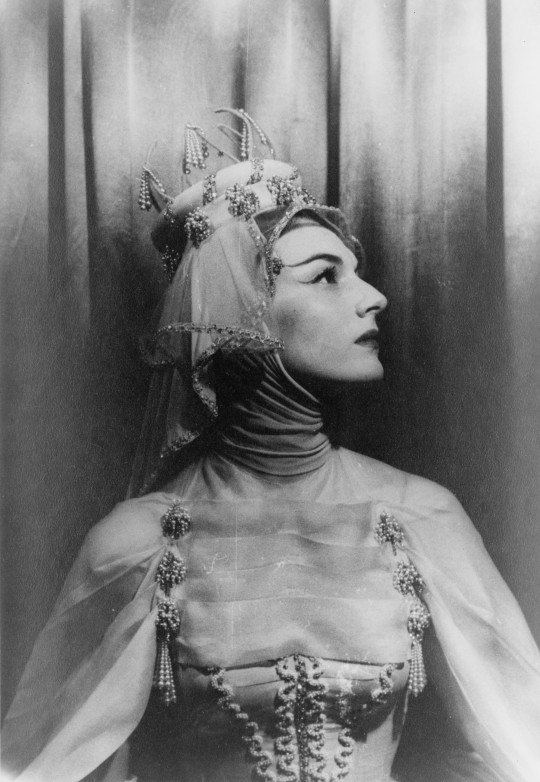
Marian Seldes as Bertha in Ondine (1954) - Carl van Vechten
11 notes
·
View notes
Text
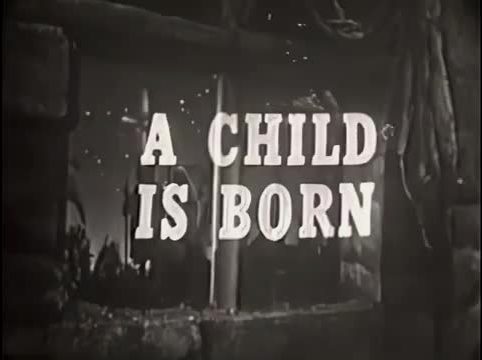

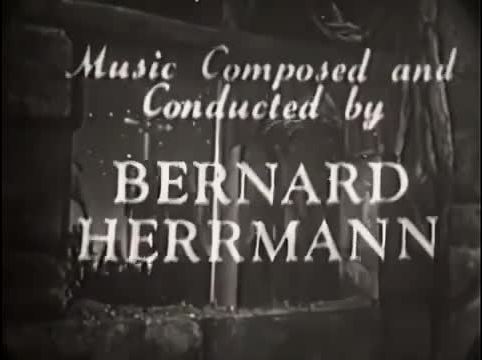

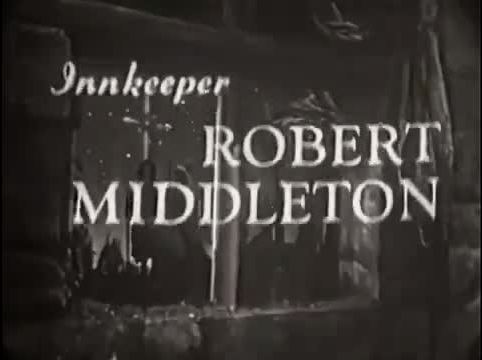
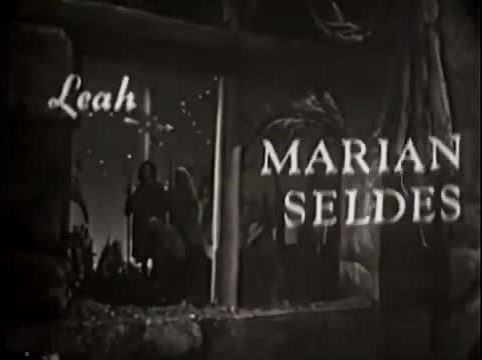
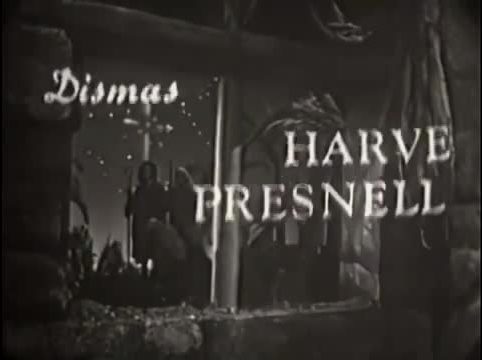

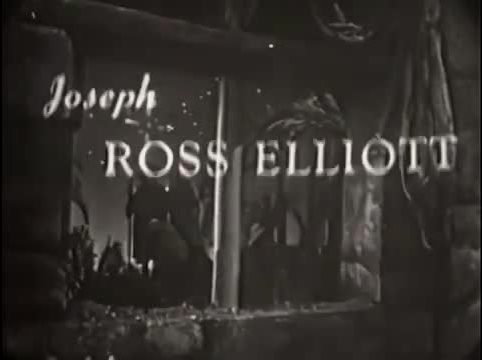
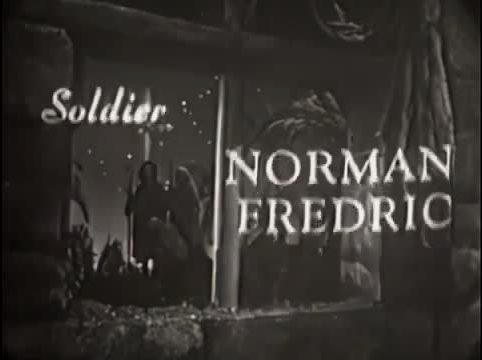

A Child is Born - CBS - December 25, 1955 and December 23, 1956
A presentation of "General Electric Theater"
Drama
Running Time: 30 minutes
Hosted by Ronald Reagan, Nancy Reagan and Patti Reagan
Stars:
Nadine Connor as Innkeeper's Wife
Robert Middleton as Innkeeper
Marian Seldes as Leah
Harve Presnell as Dismas
Nyra Monsour as Sarah
Ross Elliott as Joseph
Dean Fredericks as Soldier (as Norman Fredric)
The Roger Wagner Chorale
A retelling of the Nativity story from the point of view of the Innkeeper's wife, her husband and their servants.
#A Child is Born#TV#General Electric Theater#1955#1956#1950's#Drama#Nadine Connor#Robert Middleton#Marian Seldes#Harve Presnell#Nyra Monsour#Ross Elliott#The Roger Wagner Chorale#Dean Fredericks
2 notes
·
View notes
Text
sara ahmed about the movie if these walls could talk 2 (dir. jane anderson, 2000):
[...] when she asks the hospital staff to see abby they say, “only family are allowed.” she is excluded from the sphere of intimates. she is a nonrelative, or not-family. the nurse asks, “is she any relation of yours, madam?” she replies, “i’m a friend, a very good friend.” they respond only with another question, “does she have any family?” the friend disappears in the weight of the address. the recognotion of family ties as the only ties that are binding means abby dies alone; it means edith waits all night, alone.
their relationship is hidden as friendship, while friendship itself becomes produced as a lesser tie, less binding, another kind of fragile.
—living a feminist life, sara ahmed.
#queer theory#sara ahmed#currently reading#feminist theory#philosophy#feminism#queer studies#queer#women writers#book quotes#book reccs#living a feminist life#lesbian theory#jane anderson#if these walls could talk#vanessa redgrave#marian seldes
7 notes
·
View notes
Text
love this picture of Marian Seldes ACTING™ in front of a concerned Jane Fonda.

6 notes
·
View notes
Text
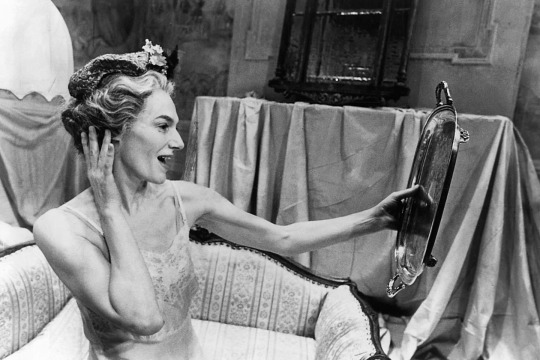
Marian Seldes in “Painting Churches,” 1983.
2 notes
·
View notes
Text
R.I.P. Angela Lansbury: The Missus & I Loved You on Broadway
R.I.P. Angela Lansbury: The Missus & I Loved You on Broadway
As the Missus said last week, thank God Angela Lansbury didn’t pass away during – and I’m paraphrasing here – England’s Long Goodbye to QE II.
Then again, Angela Lansbury’s timing was always impeccable.
It allowed, for example, Daniel Lewis’s lovely obituary to run on Page One of the New York Times.
Angela Lansbury, Star of Film, Stage and ‘Murder, She Wrote,’ Dies at 96
She was a Hollywood and…
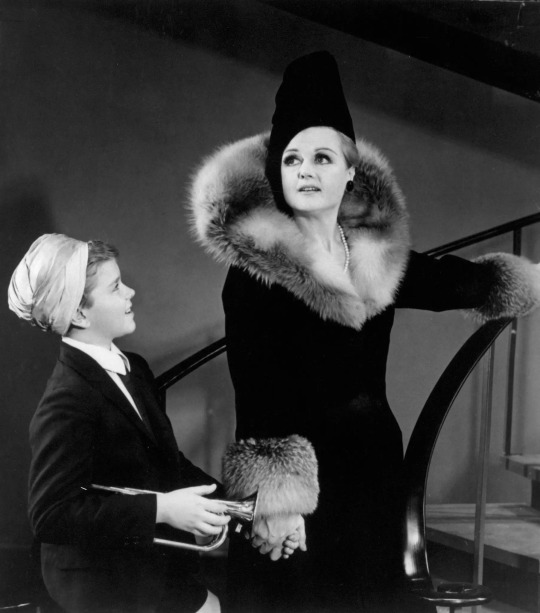
View On WordPress
#A Little Night Music#A Little Priest#Angela Lansbury#Blithe Spirit#Candice Bergen#Catherine Zeta-Jones#CUNY Theater Talk#Daniel Lewis#Ginger Rogers Century Exhibition#Gore Vidal#Helena Bonham Carter#Howard Gotlieb Archival Research Center#James Earl Jones#Jesse Green#John Larroquette#Len Cariou#Madame Arcati#Mame#Marian Seldes#Michael Riedel#Mrs. Lovett#New York Times#Noël Coward#Patti LuPone#Queen Elizabeth GrieveArama#Scott Tobias#Stephen Sondheim#Susan Haskins#Sweeney Todd#The Best Man
6 notes
·
View notes
Text

"I wasn't raised in a religious household: We were taught to be kind and honest and diligent. To be fair; to recognize that everyone was equal. My father had spent time in a Utopian society, and those beliefs were in our home, and they shaped our lives."
"I envied people who had rituals and regimens. I had rituals and regimens in dance class, with homework, but when I would appear in Christmas pageants at school, I didn't know what a lot of it meant. I so wanted to begin a novena, whatever that was, and pray for thirty or forty days, waiting for an answer or an outcome, but I didn't have a rosary or a book explaining the prayers to me, so I sort of made one up for myself. I would pray to, I don't know, the earth and the air and the souls of great artists, and ask for strength to be kind for thirty days. I would vow to not say anything unkind or critical of anyone, and I would walk away from anyone who chose to be mean. Oh, I was so severe! I stuck to it."
"I think it might have become embedded within me, which is what these rituals are for, right? I ask the spirits and the air to help me be kind. I work very hard not to be critical. I am utterly silent about suggestions unless someone very pointedly asks me for them, or if I'm in a classroom and I need to help someone. I'm on a novena, you see, always, and the only rosary I own is the one you gave me, that Tennessee [Williams] gave to you, which is crafted from wood and is from Israel, which I think, sweetly, Tennessee chose because he knew my father was Jewish, and that I must be Jewish, and perhaps he believed a rosary from Israel would not lead to my hands bursting into flame holding this Christian tool. But I keep it with me all the time, and I am still on the long novena to be kind."
- Marian Seldes, Interview with James Grissom (2001)
(Image: Seldes in Ondine, 1954)
#marian seldes#tennessee williams#follies of god#pagan hollywood#old hollywood#ritual#rituals#novena#film#black and white#photography#philosophy#quote#james grissom#art#artist#prayer#Ondine#are you kind
2 notes
·
View notes
Text
Film after film: Town and Country (dir. Peter Chelsom, 2001)


I don't get pleasure out of watching obviously bad films, and this one is a blatant example of this category. Some of them are interesting in a "How did this get made?" way (great podcast, speaking of which). I used to follow Keaton's filmography pretty closely, starting in the mid-1990s, when I would be consistently disappointed by her choices, among which the silly slapstick of Plan B (2002) seemed the most energetic. The latter followed this film, which, in turn, followed her saggy last directorial effort, Hanging Up (2001), based on Nora Efron's uninspired story. A few years before, she co-starred with Hawn, whose screen presence in the 1990s was more sporadic and increasingly uninteresting. I've never been a fan of Beatty, though his Reds (1981) remain a strangely appealing big epic drama, the genre I am hugely suspicious of and mostly very negative about. This film reminded me of his popular starrer Shampoo (1975), the Hal Ashby film that I always wanted to like but never could, despite a great cast of actresses, led by Julie Christie. Town & Country is way worse, built around transphobic, homophobic, and sexist wink-wink stale jokes, as well as around Beatty's protagonist, who is inexplicably adored, desired, and pursued by everybody. Costing over $100mln, this film should not be as forgotten as it seems to be, as it serves a pretty interesting demonstration of how blatantly tone-deaf and toxic the white privilege of its stars manifests itself.
#filmafterfilm#town & country#warren beatty#diane keaton#goldie hawn#garry shandling#andie macdowell#nastassja kinski#jenna elfman#charlton heston#josh hartnett#marian seldes#how did this get made
0 notes
Text
"Doubt and depression will always crop up, I think. It can't be helped--the cropping up. What can be helped is the response. Always remember that doubt and depression will recur, but they're spotty. Love is strong and always there. My doubts lead me to love, and then I'm fine. So know that as strong as depression and doubt may appear, love is stronger."--Marian Seldes
10 notes
·
View notes
Text

Follies Of God
"I have lived for a long time, and I have seen so many things and met so many people, and I have yet to see where cruelty is justified. There is simply no place for it, and I find it unforgivable. Honesty can heal and clarify and elevate, and we all must learn how to share it without pain, and there can not be a trace of cruelty in it. No one on the planet is alien to you, or should be. Everyone is a mirror of you, their lives a lesson. There can be no cruelty."--Marian Seldes/Interview with James Grissom/1997/Photograph of Marian as a student at The Neighborhood Playhouse in 1945/
14 notes
·
View notes
Text
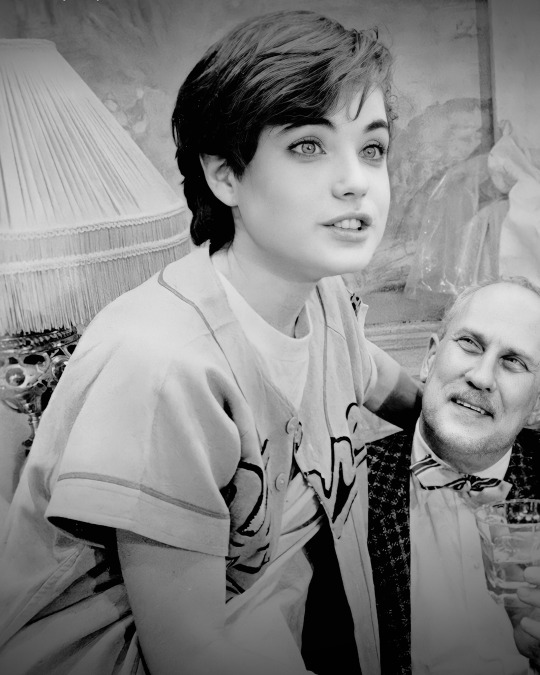
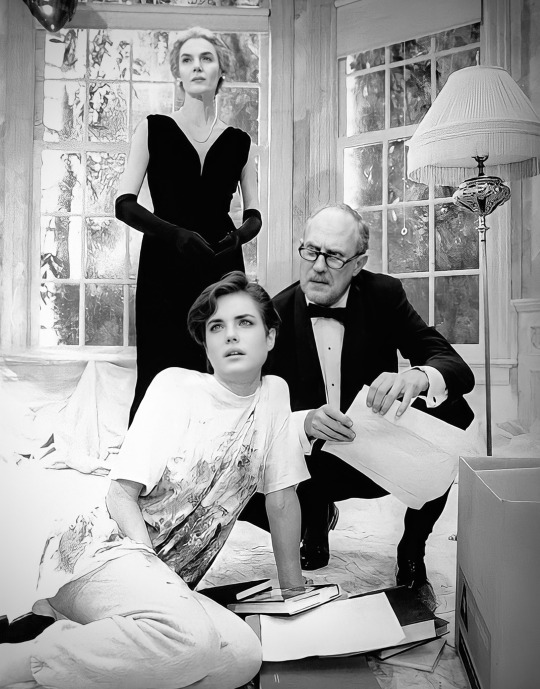
elizabeth mcgovern as margaret church (with george n. martin & marian seldes) in the off-broadway production of “painting churches” (1983) | 📸: martha swope
12 notes
·
View notes
Text
“The hardest thing to teach a student—and the hardest thing to believe consistently—is that there is nothing ‘out there’ to go and get. There is no part, no career, no opportunity for which you should be searching and scrounging and coveting. All of the preparation is within, and you keep yourself mentally and physically fit; you remain generous with yourself and others; you stay deeply in study about your craft. Whatever is yours will then arrive.”
— Marian Seldes
2 notes
·
View notes
Text
“I loved her passion. She was very good to me, and we worked on a program for television that was not good. We both knew this, but you go on. She looked after me, and she wouldn’t allow anyone to mistreat me. I was so awkward on that set. She demanded that everyone be called by their names. I was called the ‘tall one’ several times. We stayed in touch. She gave me the longest, sweetest blurb for ‘The Bright Lights’ [a 1978 memoir]. I would listen to her for hours. She spoke of her career—the ‘good years’ in the 1930s and early 1940s—as though she were talking about a dead child or lover. She was devastated at what was gone. She could not understand why it would not return.”—Marian Seldes on Bette Davis, in 1989. Photograph, from 1942, via the Donaldson Collection.

2 notes
·
View notes